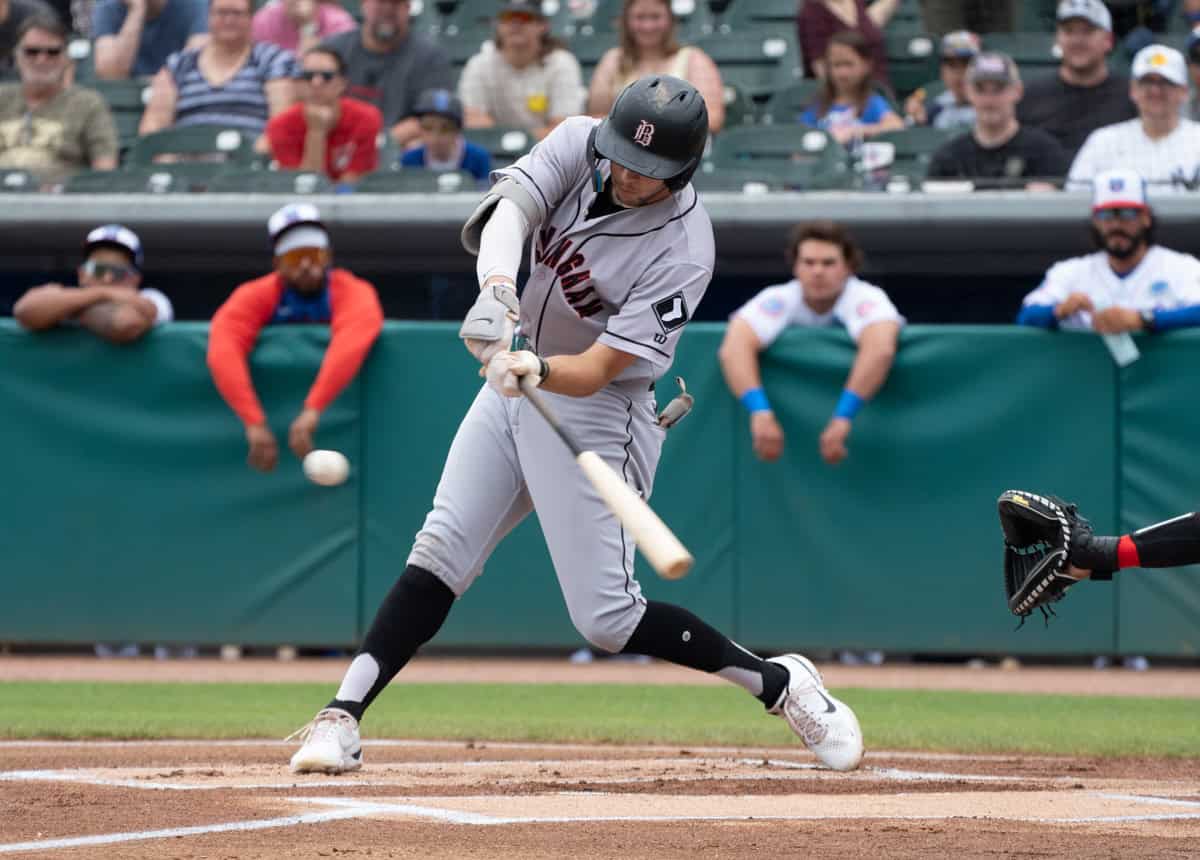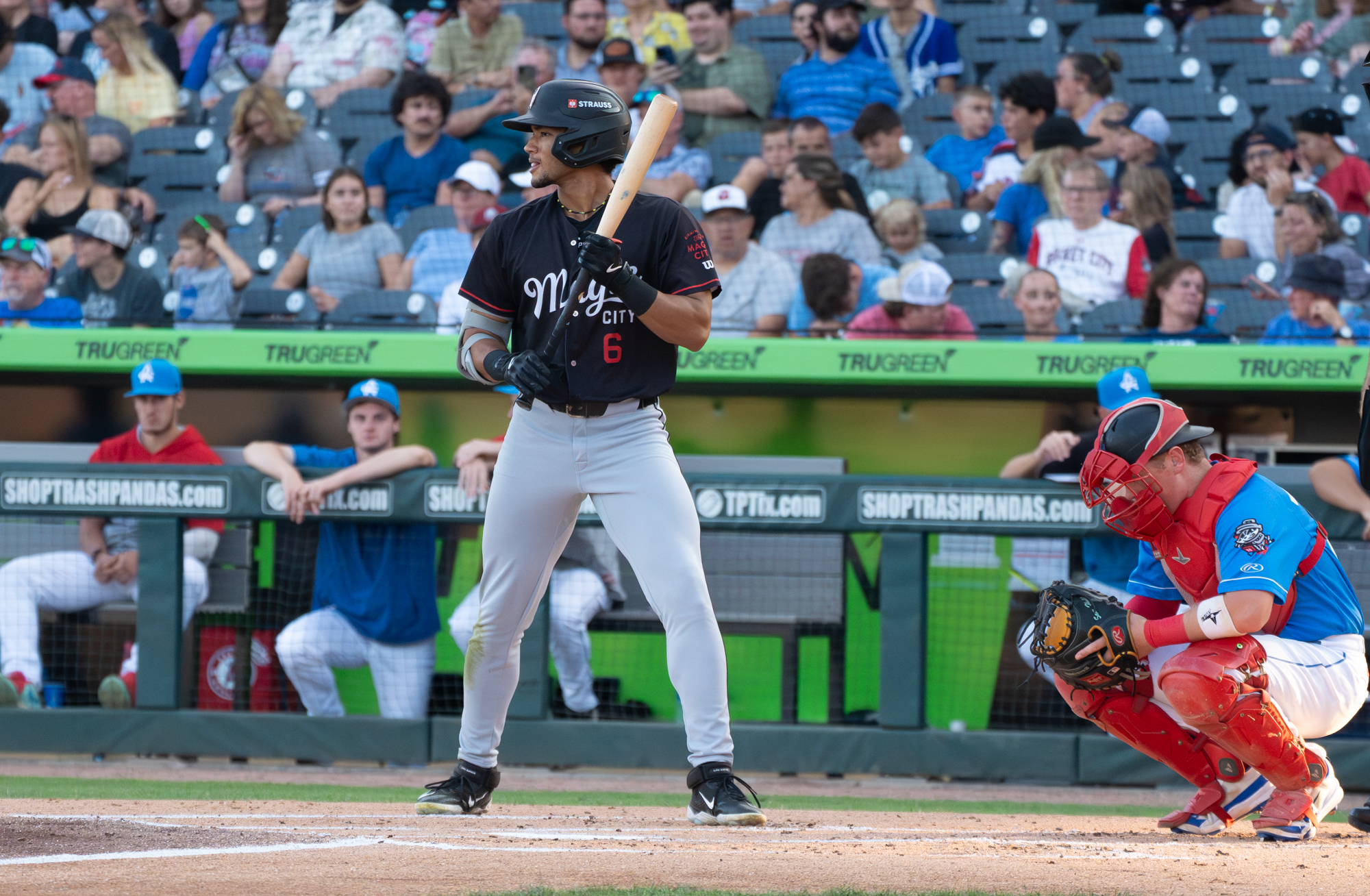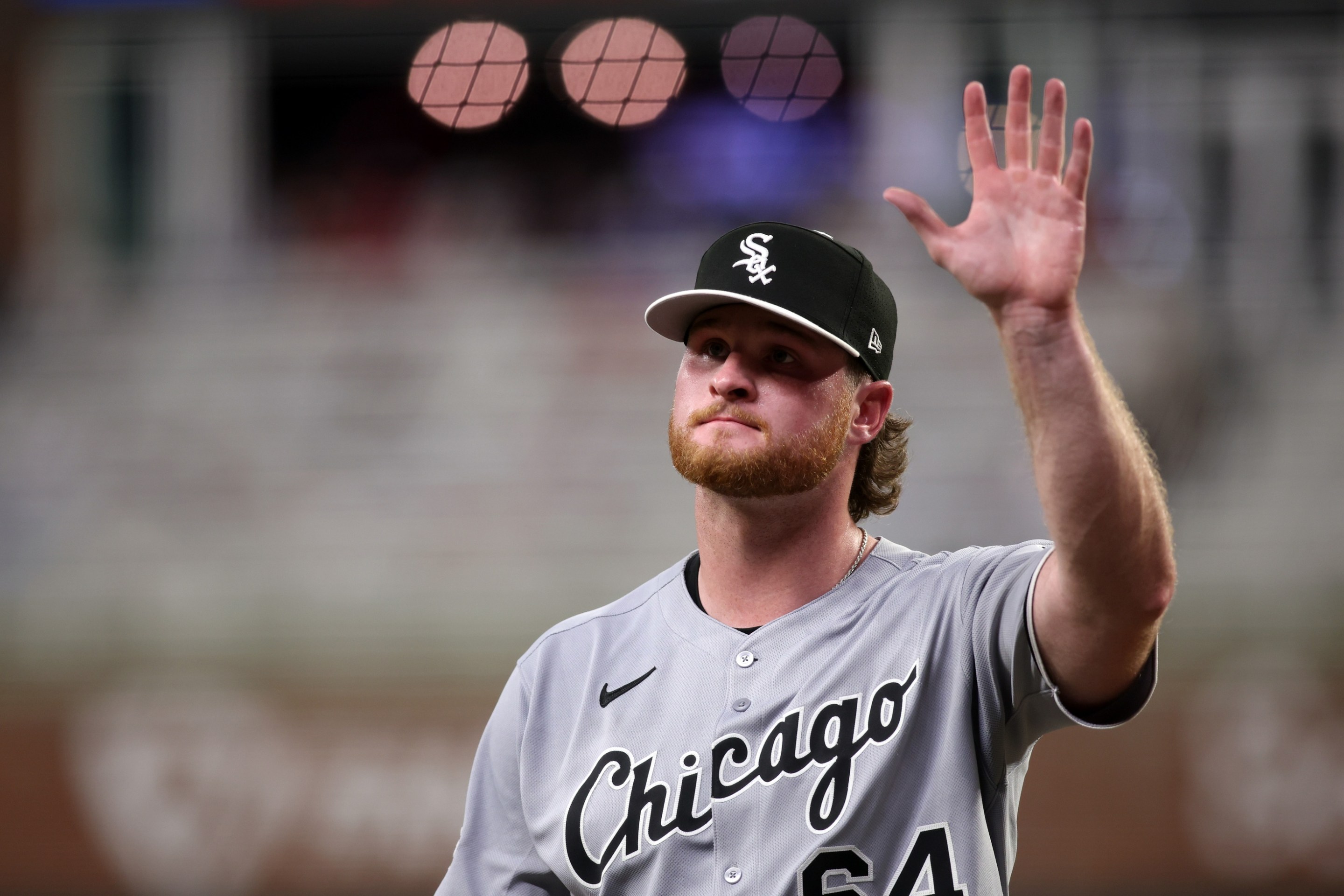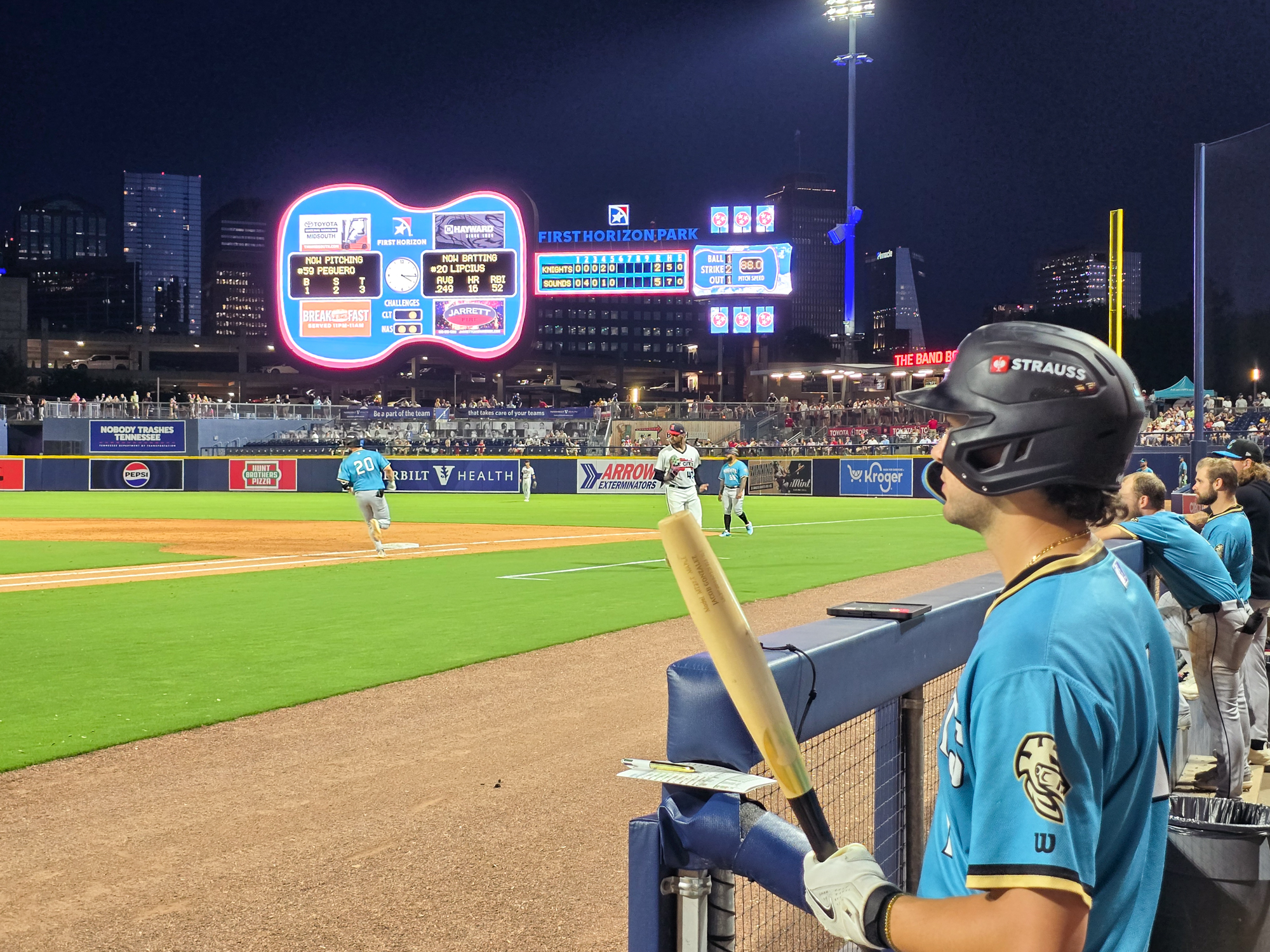On Tuesday, ESPN MLB Insider Kiley McDaniel held a Zoom call to discuss his latest Top 100 prospect rankings. According to McDaniel, the Chicago White Sox have the second-best farm system in major league baseball, with a monetary value of $313 million. Only the Los Angeles Dodgers have a higher-rated system, with a monetary value of $420 million, in large part thanks to their recent signing of Japanese pitching phenom Roki Sasaki.
In total, six White Sox prospects make ESPN’s Top 100. Left-handed pitcher Noah Schultz is the highest rated, ranked 18th overall, followed by Colson Montgomery, Kyle Teel, Hagen Smith, Edgar Quero, and Braden Montgomery.
When McDaniel expands his prospect rankings for the top 200 prospects, the White Sox have four additional entries: Jacob Gonzalez, Bryan Ramos, Jairo Iriarte, and Grant Taylor.
JOSH NELSON: You are the most optimistic of the publications regarding the Chicago White Sox farm system . . .
KILEY MCDANIEL: You're welcome.
NELSON: Well, be careful with that. In your opinion, what areas of the system have you seen the most growth from even two years ago?
MCDANIEL: Good question. There's the Garrett Crochet trade where you're just trading big league value for minor league value, and a large amount of it, so that's one thing.
You've had some guys who are expected to be good. Colson Montgomery and Noah Schultz have been in the top 100 for two years. They were not at the stage where they could have gone to the majors last year. You then have the lucky part of our prospect value: staying in the farm system longer.
It's also been the years-long accumulation of players along with the normal international and draft stuff, and then some guys who I think have been at that upper level of the system for a while haven't graduated.
It is not one of these things I've been talking about before where it's like, "Oh, they've figured out a thing that in the draft. They just take five guys like this and three of them go to the top 100," like a handful of teams have figured out. I don't think the White Sox have figured that out. They've just been accumulating enough guys who have been timed at just the right time that the exercise I'm doing reflects well on them.
The big league record was not fantastic last year. I think it'll be better this year. It's not going to be because Montgomery is going to come up with a 6 WAR season and save the day. I think it's just a lot of mildly good things going, and maybe this year will turn into a spicy good thing instead of just a number of mild good things.
But yes, things are going in the right direction. They are doing a good job. I would love to upgrade this to a great job, and I think they'll have the opportunity to prove that this year.
NELSON: We learned at the Winter Meetings from general manager Chris Getz that the White Sox are going to give Colson Montgomery every opportunity to win the starting shortstop job during Spring Training. Is that a good idea for both Montgomery's development and the Chicago White Sox if he is the Opening Day starting shortstop?
MCDANIEL: That's a very good question.
I think [Montgomery] needs at least a month in Triple-A to establish that he is what we think he's going to be and that he's ready to go. He's not going to come up and embarrass himself, get sent down, and possibly go into a spiral, which we see sometimes with prospects.
That's how I would approach it. Even if Montgomery goes in and has a 200 OPS+ in Spring Training, I would still send him down. But I can see the allure to be like, "Well, we're going to get a draft pick because he's going to win Rookie of the Year. Look at this, this is our guy; let's get some people excited." I know there's an allure to do that.
I don't think there's a lot of logic to say that you should do that, even if he goes nuts, but it could be as few as 25 games is all you need to feel better about it.
Also, I think he's a fine defensive shortstop in that he catches and throws the ball. I don't think he's giving you a lot of range; with some young pitchers, that may not be what you want to do.
I think Opening Day shortstop is probably not a good idea. Ask me again toward the end of March, and maybe I'll feel a little bit differently about it.
NELSON: Has the industry developed a consensus in what is the best development path for prep pitchers? Again, "there's no such thing as a pitching prospect," but at the same time Noah Schultz is not ready to throw 100 innings in the majors.
MCDANIEL: Yeah, that's another tricky one. Pittsburgh, with Paul Skenes, took it easy for an inning or two at a time. Then ramped him up and let him go. Teams could do it the other way and then shut a pitcher down at the end if they don't think they're going to be in the playoffs. Because who cares about September? There's a couple different ways to do it.
It is difficult to look at some of these prep prospects and say, "This guy looks really good. He's been going three innings at a time. Alright, I'm going to move him up. Does he go in the top 100?"
Then I'm like, "He threw 60 innings last year, a career high. It will take at least three years to be in a rotation for a full season in the big leagues. Is the guy going to stay healthy for three years? What are we doing?"
For [prep pitchers], developing in a professional environment is best where they are looking out for your future the most. They want all six years of that future to be with them. Whereas in college, we've seen a number of guys that get basically kicked off their team because they can't throw strikes, but then turn into real big leaguers. If I'm not mistaken, Brandon Woodruff couldn't get on the mound with Mississippi State and has made a lot of money. (Note: Woodruff in three seasons at Mississippi State only appeared in 34 games, pitching 90 innings)
So, there are certain kinds of prep pitchers who should not go to college because they will lose value if they can't throw a trustworthy number of strikes. They don't get any better because they don't get on the mound.
Generally speaking, I would say trust the pro path with one of the 10 to 15 teams with a track record of doing well with prep pitchers. But a blanket statement like, "Oh, everyone should go to pro ball," is obviously not true.
NELSON: James Fegan wanted me to ask about your ranking of Jacob Gonzalez, who is No. 139 in your Top 200.
MCDANIEL: If you can play an average shortstop, put the ball in play, and hit 12 homers, that is a role 5 player (50 grade) that will put up 1.6 to 2.0 WAR.
I would say my journey with Jacob Gonzalez was watching him in high school thinking he might be a guy. Then his freshman year at Ole Miss, and I’m like, “Oh, okay, this might be good.”
By the draft, I was not really sure, and early in his pro career those exit velocities don't look great. They’ve got a little bit better since.
I have Gonzales at a future value of 45+, which means it's basically a coin flip. He could be a good utility guy that plays every now and then, or a low-end starter. I think he's right in the middle of that. He's close to the majors. He was drafted high, has some tools, and has some performance. But yeah, I'm not doing a backflip over him.






